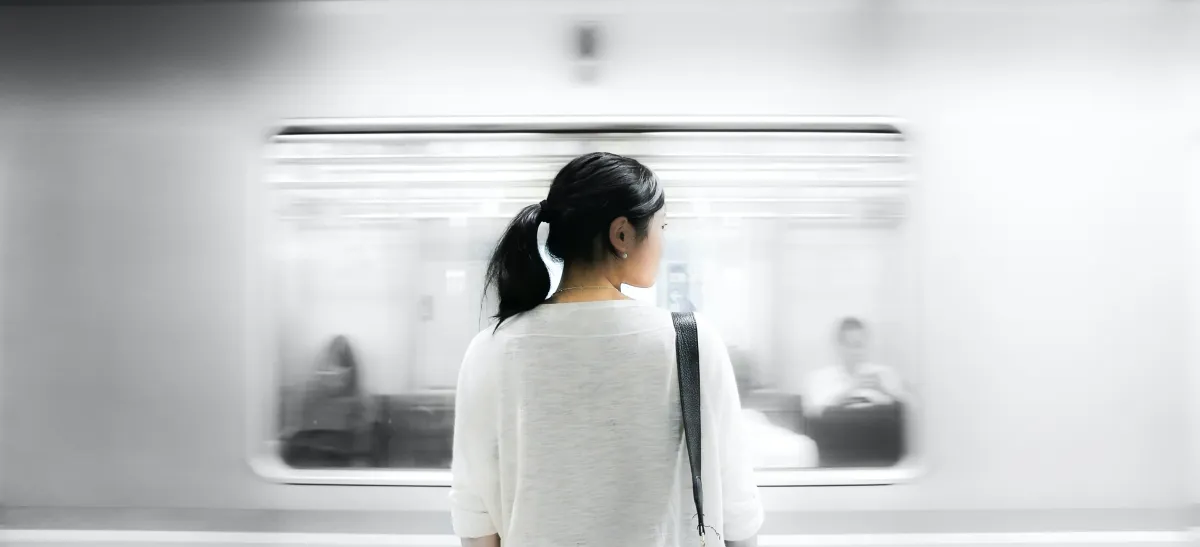From LinkedIn Predators to Real-Life Stalkers - Just Another Week in a Woman’s Life
Six years after #MeToo, has reality truly improved for women?

Access the Audio Read version of this article directly on Spotify for Podcasters.
Raise your hand if you’ve ever received an unsolicited nude, got catcalled on the street, or were stalked on your way home at some point in your life?
I imagine that the majority of you reading this have experienced at least one of these, if not all. As for me, I’ve had a pretty insightful week, with quite a few stories to tell.
—---------
Monday:
I receive a text message from a friend of mine, a Black woman in her late 30s, telling me as she was travelling alone, that a much older white man tried to make a creepy pass at her over text, after she befriended him and some of his older friends at a B&B they were all staying at. The man knew her room number, so she was unsettled and wanted to change accommodations asap. For the rest of her trip abroad, she avoided the neighbourhood altogether, afraid to run into him and his friends. That text had come mere hours after their encounter, and had described her as an ‘exotic’ creature he wanted to have sex with. On top of feeling unsafe, she felt fetishised. This is a feeling that women of colour travelling solo know all too well.
—---------
Tuesday:
As I check my Instagram, I have the pleasure of receiving a random message from an elderly man offering his services as a Sugar Daddy “that pays $7,000 a week.” How selfless. Here’s the thing, I could use the $7,000, especially in a cost of living crisis, but I am not offering Sugar Baby services, and I felt violated by the intrusion on my private profile. Not to mention that this was yet another sexualised interaction from a man to a woman, and I was fed up with it. However, I was conflicted in my emotions. I laughed at the DM because the timing between my friend’s message and mine couldn't be more on point. I laughed with embarrassment because the situation was so incongruous. I laughed in disgust because someone was objectifying me. I laughed because I couldn’t believe this was real life.
—---------
Wednesday:
I come across a social media post about a professional Arab woman who, for the last 4 years, had been fighting a losing battle against a former coworker who had sexually harassed her. You could read how tired she was of the situation, and it was a clear snapshot of the hardships women have to navigate through in a professional environment. She wanted justice, and she wanted it for everyone. She was done being the victim in the eyes of society, and was ready to carry the torch for all women out there. The post made me think of my friends and I, of our own struggles with inappropriate coworkers and bosses, who are probably still using their power to terrorise women at work, unfazed.
—---------
Thursday:
I stumble upon another post from a woman fed up with men sliding into her DMs to proposition her, on LinkedIn this time. This is common practice now, and I have heard many stories of LinkedIn predators. The ones who pretend to reach out for a professional opportunity, then quickly compliment your appearance and offer to meet up. The ones who basically use your need to work to request sex from you. When that woman used her platform to voice her concerns, she didn't realise her post would go viral. But testimonies with similar stories came in the thousands. Too many of us can empathise or relate to her experience, and yet again it would be nice to have *some* places where we don’t feel like prey.
—---------
Friday:
This week makes me reflect on what a mess the world still is for women. A younger me might have thought it quite unusual to see that much sexual harassment in so little time, but I know better now. In January 2018, a year after the #MeToo movement fully emerged in the media, an online survey launched by non-profit Stop Street Harassment found that 81% of women and 43% of men had experienced some form of sexual harassment during their lifetime. 5 years later, we are not faring that much better. A YouGov survey released that same year found that 19% of all women and 40% of women aged 18 to 34 had received an unsolicited sexual picture from a person who isn’t a romantic partner. I still hear of these stories every week. According to a 2020 survey by Plan International UK, two thirds of young women and girls have experienced unwanted sexual attention or harassment in a public place, such as a bus stop, park or on the street. When #MeToo blew out, women spoke out of how common catcalling was, to a point where we forget it even happens when we recount our experiences of sexual harassment. The normalisation of men’s predatory behaviour has erased a lot of our stories, so I tend to think there is a lot this data doesn’t capture.
Until very recently, I had minimised this kind of ‘attention’, attributing them to men being ‘clumsy’, but also because I didn’t want to attract attention to myself. Whenever something like this would happen to me, I would smile shyly, not knowing how to respond, or feel shame for something I was actually a victim of. Because patriarchy has always won the game of blaming and shaming women for the misbehaviour of men.
—---------
As women growing up in the nineties, we have been told over and over that ‘boys will be boys’, and that we shouldn’t take these things too seriously. I’m very conscious that not all sexual advances are malicious, but I’m exhausted that in 2023, we still have to explain how daunting and traumatising it can be when it’s at the most inappropriate time and place. When it’s also covered with fetishisation and a hint of threat. When our freedom of movement, our careers, our mental health are potentially at risk. A lot of men still do not seem to understand that just because some women post ‘sexy’ pictures online or wear short skirts, it doesn’t mean they expect sex. That being friendly with a man is not a call for sex. That breathing next to a man, crossing his eyesight, or even smiling, is not ‘asking for it’.
I can now quickly spot why a man engages with me. I can see within a flash whether I’m about to be fetishised, sexualised, and potentially endangered. I am trying to use years of tolerated abuse as an advantage, a hard lesson that could help keep me safe in the future. Help, because danger is omnipresent for women.
I am done excusing men. They need to take responsibility for their behaviour. They must be accountable for their obscene comments and gestures, their dick pics, their random sexual requests, their catcalling, their objectification of women, and their violence. Men need to understand the blame is on them, and them only. They must also take ownership for the actions of the men in their lives. Call out each other, educate each other. Make good use of that damned Bro Culture.
And as women, we have to reclaim our spaces and be vocal when our mental health allows it. The shame is on men, not on us. No more feeling insecure. No more excuses. No more.





